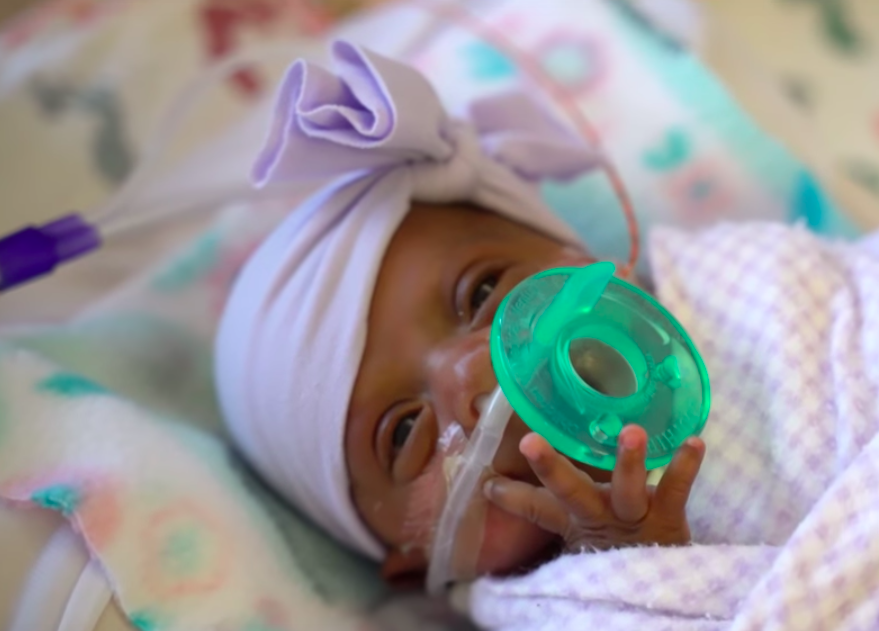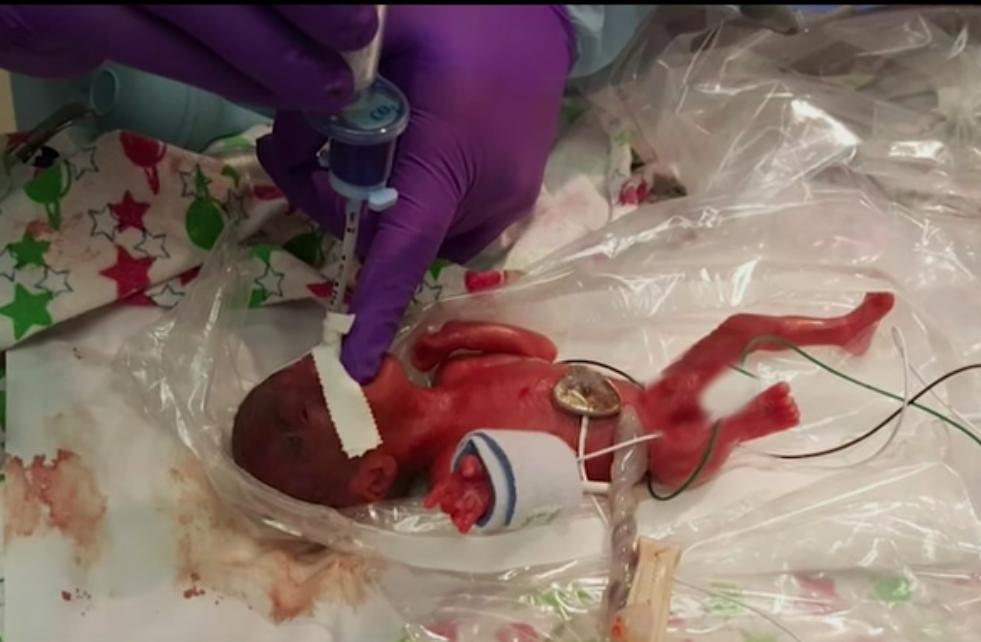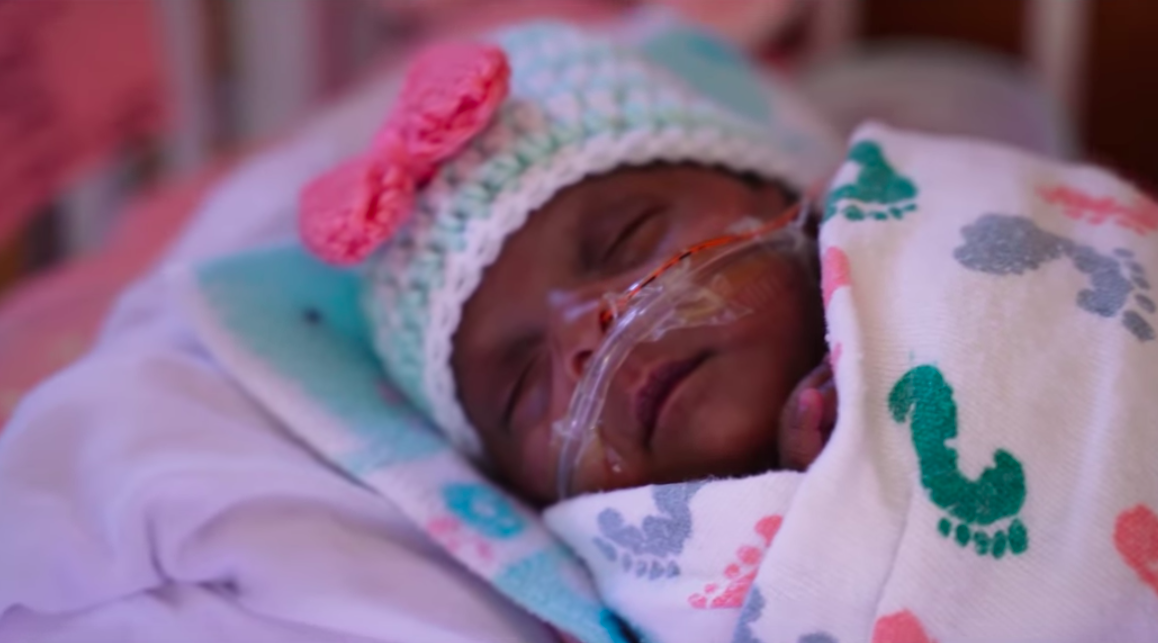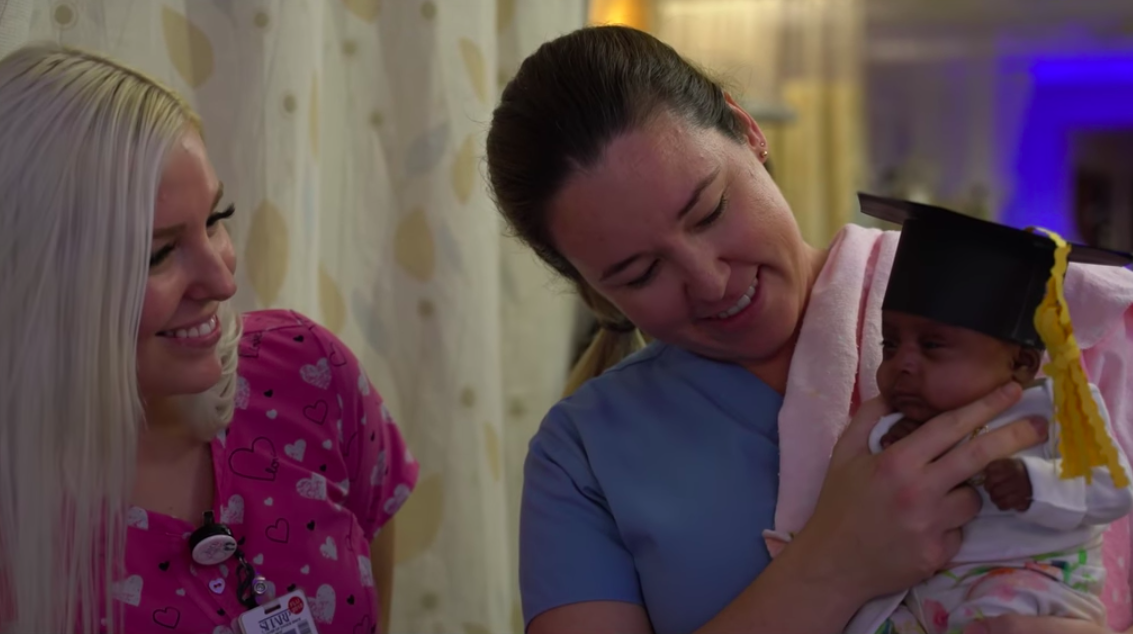
In December 2018, doctors at a hospital in San Diego were forced to make a call to save a mother's life — and hopefully, that of her baby. The unnamed mother, who wishes to remain anonymous to maintain her privacy, was suffering from preeclampsia, and it was decided the best course of action would be an emergency C-section. The only problem? She was just 23 weeks along at the time, which meant that her baby would be delivered a full three months early. When the little girl finally entered the world, she weighed just 8.6 ounces — equivalent to an apple.
Doctors immediately told the baby's parents to brace themselves -- after all, no baby on record had ever survived at such a low birth weight.
"They told my husband he had about an hour with her and that she was going to die," the baby's mother shared in a video released by the hospital this week. "But that hour turned into two hours. Which turned into a day. Which turned into a week."
In the end, doctors underestimated the little girl, who staff called Saybie. After building up all her strength at Sharp Mary Birch Hospital for Women & Newborns, she was discharged this month from the NICU — at a healthy 5 pounds, 6 ounces.
Saybie now holds the title of World's Smallest Surviving Baby -- 7 grams less than the previous title holder, born in Germany in 2015.

Those stats are maintained by the Tiniest Babies Registry, run by the University of Iowa, which notes on its website just how uncommon it is for babies smaller than 14.1 ounces to survive.
In fact, Saybie's doctors and nurses are so in awe of her progress, they're calling her a tiny miracle.
"I'm just really proud of them and the baby, and to just see them transform as parents and see this little baby go home that usually is like completely against all odds," nurse Devyn Kohl told NBC News.
According to the March of Dimes, preeclampsia affects just 2 to 8 percent of pregnancies worldwide, but it can be serious -- and even fatal.

The complication, which is characterized by high blood pressure and signs of damage to other organs (usually the liver and/or kidneys), typically occurs around the 20th week of a woman's pregnancy, which places both the mother and baby at risk (especially if left untreated).
In fact, preeclampsia is the cause of 15 percent of all premature births, the March of Dimes reports. In other words, 3 out of every 20 babies.
Still, preeclampsia can often resolve itself, and many moms who experience it go on to deliver healthy, full-term babies.
As for little Saybie, her story may have been a bit more extreme than most, but her parents are happy to finally have their baby girl home.

They'll also never forget the dedicated NICU medical staff who became like close friends to them, caring for their little girl day in and day out. A team of doctors and nurses who cheered her on for five months — and will continue to cheer her on as she grows up.
"I just want her to know how strong she is," nurse Emma Wiest told NBC News. "I mean, if she can start off where she was and do as well as she can be, there's nothing she can't do."




